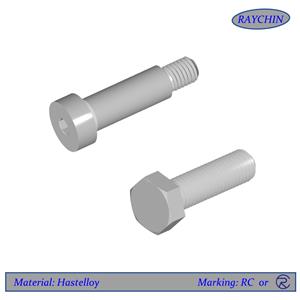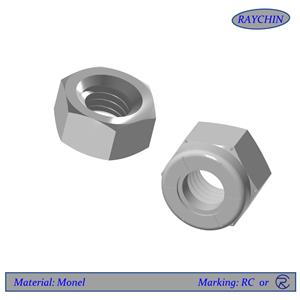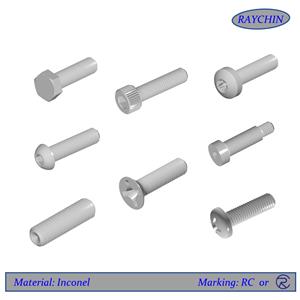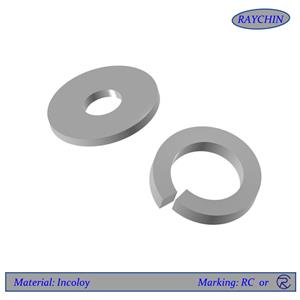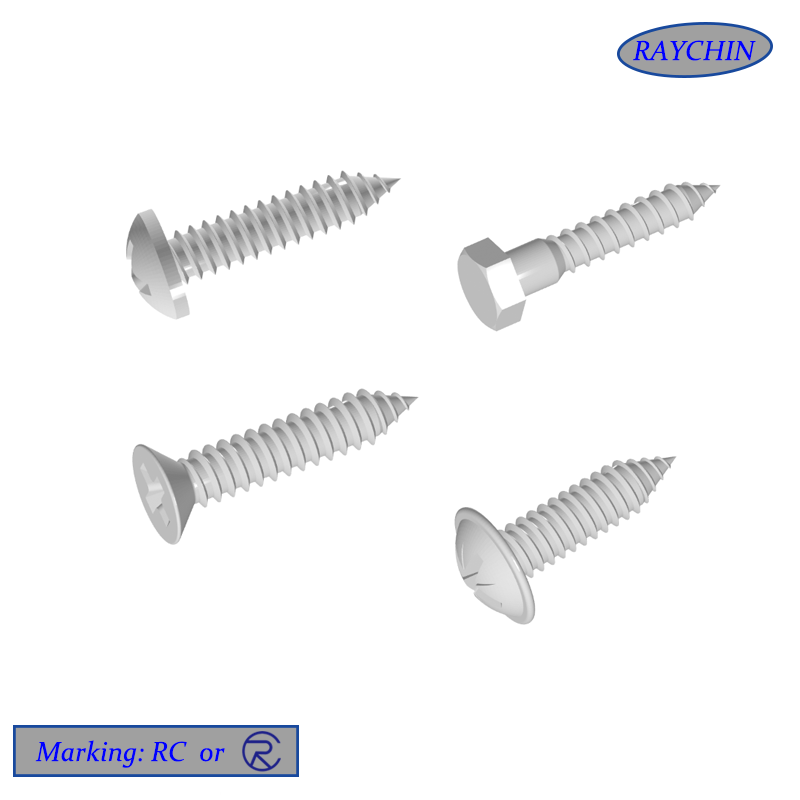
Self Tapping Screws
Brand RAYCHIN
Product origin China
Delivery time 5-35 DAYS
Self Tapping Screws
RAYCHIN is a manufacturer and worldwide supplier of standard & custom fasteners(Self Tapping Screws) including those manufactured from the following materials: Duplex S31803, Duplex S32205 and Super Duplex S32750,Carbon Steel, Stainless Steel
Self Tapping Screws
RAYCHIN's Self Tapping Screws are manufactured by the cold heading technology We offer fasteners in both USCS/Imperial and metric sizes.
RAYCHIN’s advanced and comprehensive range of capabilities include engineering, R&D, prototyping, custom manufacturing, precision processing and testing. All RAYCHIN materials are sourced from the most reputable and exacting foundries in the world. We maintain a multi-million-dollar inventory of fasteners in our product warehouse, which enables RAYCHIN to select, package and expedite your order quickly.
We are globally recognized as the emerging leader of high-quality, nickel alloy fasteners and are proud to serve our customers worldwide.
RAYCHIN SELF TAPPING SCREWS meet applicable ASTM, ANSI, ASME, SAE, API, NAS, AN, MS, NACE, ISO, DIN, and KS standards.
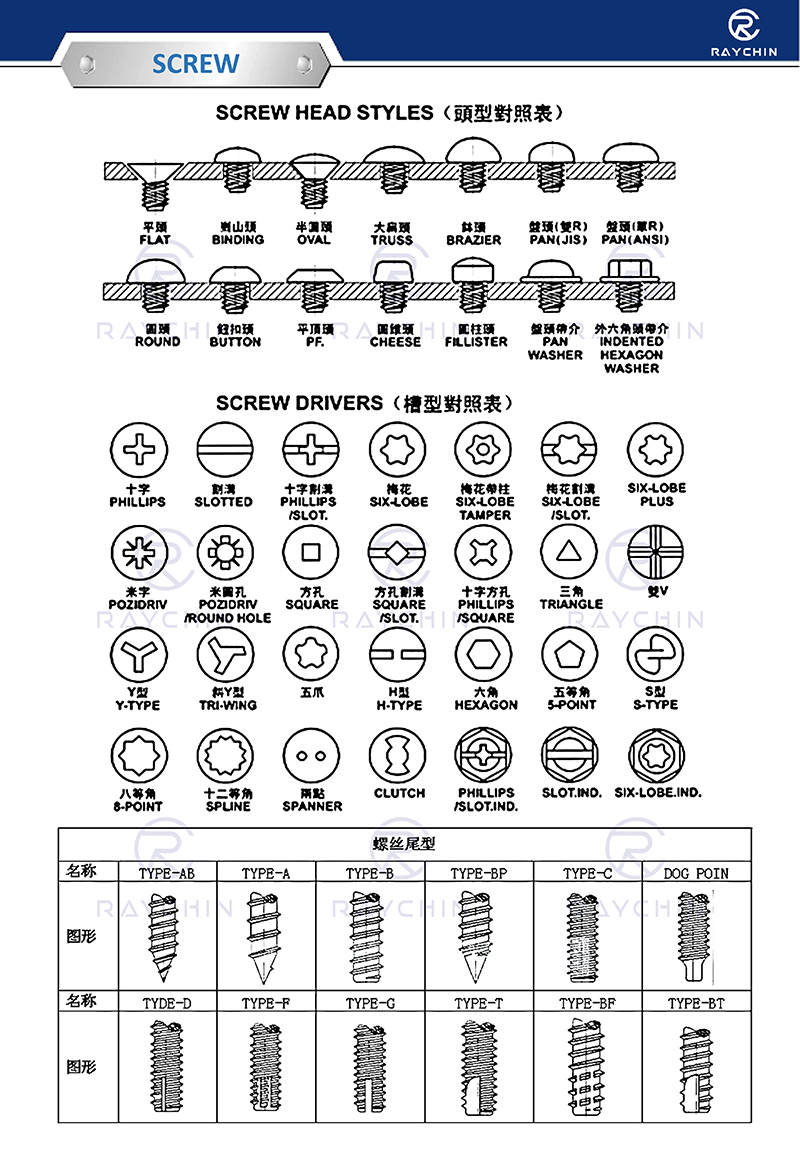
Self-tapping screws have a wide range of tip and thread patterns, and are available with almost any possible screw head design. Common features are the screw thread covering the whole length of the screw from tip to head and a pronounced thread hard enough for the intended substrate, often case-hardened.
For hard substrates such as metal or hard plastics, the self-tapping ability is often created by cutting a gap in the continuity of the thread on the screw, generating a flute and cutting edge similar to those on a tap. Thus, whereas a regular machine screw cannot tap its own hole in a metal substrate, a self-tapping one can (within reasonable limits of substrate hardness and depth).
For softer substrates such as wood or soft plastics, the self-tapping ability can come simply from a tip that tapers to a gimlet point (in which no flute is needed). Like the tip of a nail or gimlet, such a point forms the hole by displacement of the surrounding material rather than any chip-forming drilling/cutting/evacuating action.
Not all self-tapping screws have a sharp tip. The type B tip is blunt and intended for use with a pilot hole, often in sheet materials. The lack of a sharp tip is helpful for packaging and handling and in some applications may be helpful for reducing the clearance necessary on the reverse of a fastened panel or for making more thread available on a given length screw.
As the name suggests, self-tapping screws are screws that have the ability to tap threads into the material. Self-tapping screws are used for all sorts of material including wood, metal, and brick. These screws cannot drill through metal and require a pilot hole to be pre-drilled before installation. A pilot hole is created by using a drill bit which is slightly smaller than the screw and the threads of the screw tap the metal or wood while the screw is being installed. This tapping action keeps the material fastened together. There are many different types of points that a self-tapping screw can have that assist in the tapping of threads into various substrates.
Tapping Screw types and Application:
Thread-Forming Tapping Screws Thread-forming tapping screws are generally for application in materials where large internal stresses are permissible, or desirable, to increase resistance to loosening. They shall be of the following types described in paras.
Type AB and ABR Type AB tapping screws shall have spaced threads, with same pitches as Type B, and a gimlet point. They are primarily intended for use in thin metal, resin-impregnated plywood,and asbestos compositions.γype AB screws, because they offer wider versatility of application, are recommended over Type A screws. If a nonsharp point is specifically required, designate the screws as a “ABR."
Type B Type B tapping screws shall have spaced threads and a blunt point with incomplete entering threads. They are intended for use in materials, such as thin metal, nonferrous castings, plastics,resinimpregnated plywood, and asbestos compositions.
Type BP Type BP tapping screws shall have spaced threads the same as Type B but shall have a conical point extending beyond the incomplete entering threads. They are intended for piercing fabrics or in assemblies where holes may be misaligned.
Type A Type A tapping screws shall have coarse spaced threads and a gimlet point. They are primarily intended for use in thin met, resin-impregnated plywood , and asbestos compositions.
Type C Type C tapping screws shall have threads of machine screw diameter-pitch combinations approximating Unified Form with a blunt point and tapered, incomplete entering threads.Type C tapping screws are not subject to thread gaging but shall meet all dimensional requirements specified herein. They are intended for application where the use of a machine screw pitch thread is preferable to the use of the spaced-thread types of thread-forming screws, or where chips from machine screw pitch thread-cutting screws are objectionable. In view of the declining use of Type C screws, which in general require high driving torques, in favor of more efficient designs of thread rolling tapping screws, they are not recommended for new design.
Thread-Cutting Tapping Screws.Thread cutting tapping screws are generally for application in materials where disruptive internal stresses are undesirable or where excessive driving torques are encountered with thread-forming screws.
Types BF and BT(23) Types BF and BT tapping screws shall have spaced threads with a blunt point and tapered entering threads, as on Type B, with one or more cutting edges and chip cavities. The tapered threads of the γ'ype BF screw may be complete or incomplete at the manufacturer's option: all other types shall have incomplete tapered threads. These screws are intended for use in plastics, asbestos, and other similar compositions.
Type D (1), F, G, and T (25) Types D, F, G, and T tapping screws shall have threads of machine screw diameter-pitch combinations approximating Unified Form with a blunt point and tapered entering threads having one or more cutting edges and chip cavities.γhe tapered threads of the Type F screw may be complete or incomplete at the manufacturer's option; all other types shall have incomplete tapered threads.
Thread-Rolling Tapping Screws - Type TRS Thread-rolling tapping screws shall have threads of machine screw diameter-pitch combinations approximating Unified Form with a blunt point, tapered entering threads, and some type of out-of-round-portion feature in the body and/or the tapere entering threads for di spl acing material in the application to form a mating internal thread without generating any chips.
Thread-rolling tapping screws are generally for application inmaterials where the installer wishes to have a thread engagement longer than one screw diameter, they do not wish to create chips during installation, and/or they wish to maximize the difference between the amount of torque it takes to drive the screw up to its seating position and the torque required to fail the application either by screw breaking or thread stripping. Thread-rolling screws are installed in untapped holes larger than the comparable thread-cutting screws because thread-rolling screws uniformly displace the mating material instead of cutting it to create the internal thread.

